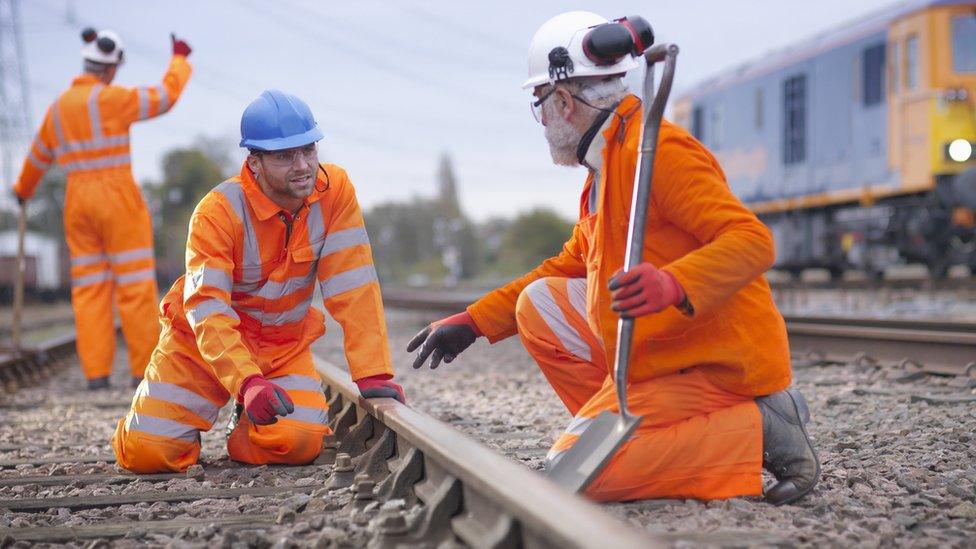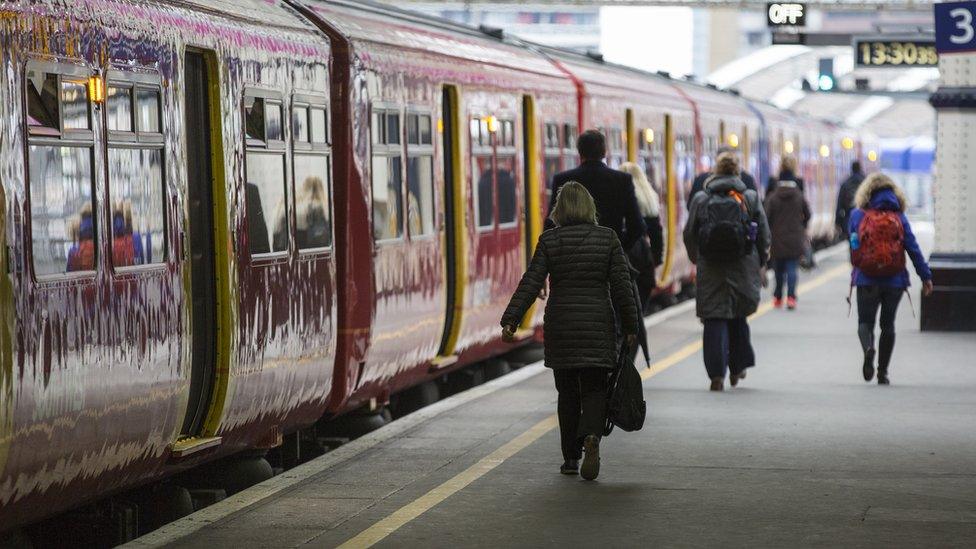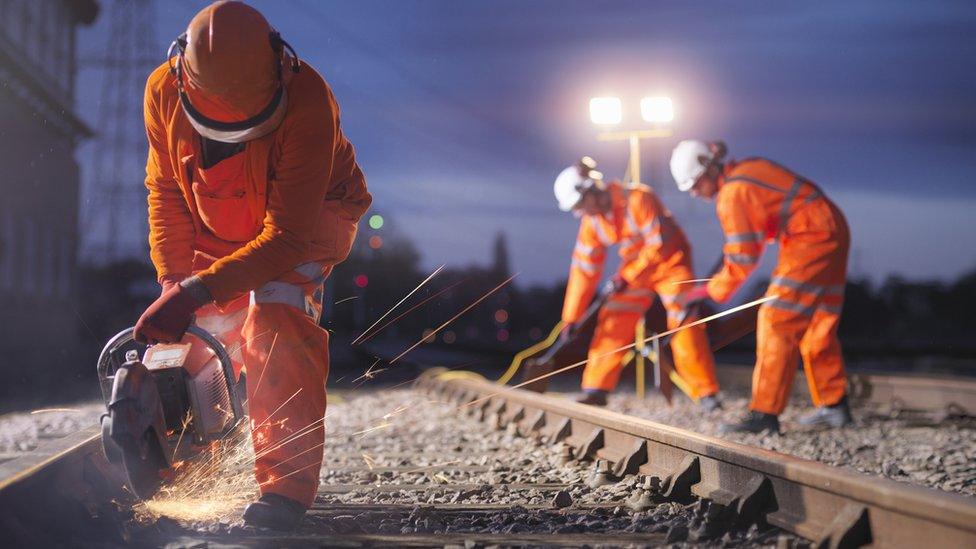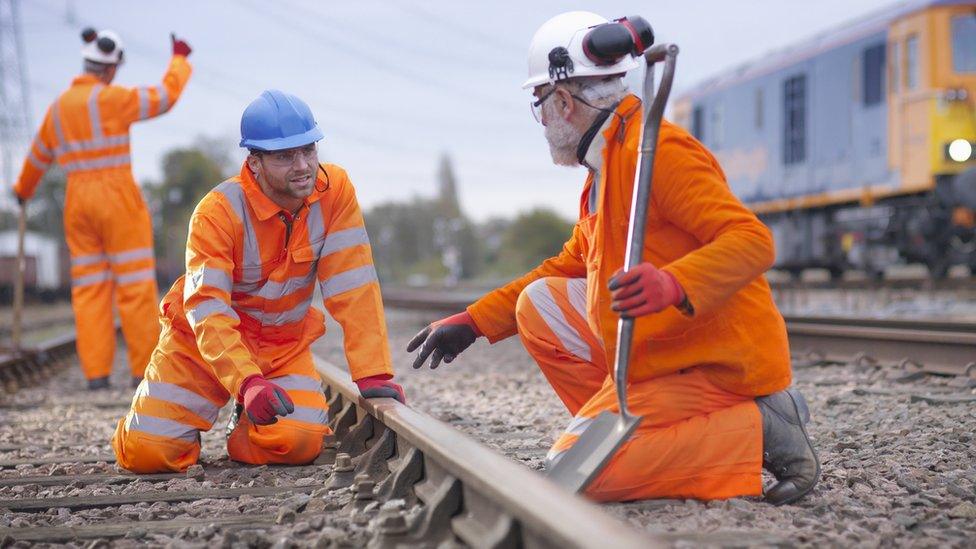Rail strike: RMT union votes for national action
- Published
- comments

Railway workers have voted to go on national strike threatening major summer travel disruption across the UK.
Members of the RMT union have voted in favour of strike action across Network Rail and 13 train operating companies.
General secretary Mick Lynch said "members want a decent pay rise, job security and no compulsory redundancies".
The Department for Transport said strikes should always be the last resort not the first.
A spokesperson said: "It is hugely disappointing and premature that the RMT is calling for industrial action before even entering discussions."
The RMT union said its leaders would meet to discuss a timetable for strike action from mid-June.
"We sincerely hope ministers will encourage the employers to return to the negotiating table and hammer out a reasonable settlement with the RMT," said Mr Lynch.
Network Rail, which maintains the railway, voted in favour of strike action and action short of strike. Its workers have not taken part in a national strike since 1994.
The company plans to shed 2,500 maintenance jobs as it tries to make £2bn of savings over the next two years.
If its staff, which include signallers walked out, that would affect both passenger services and the movement of goods by train, including bulk consignments of fuel, and some food.
It is possible that trains would only run for part of the day, such as from 07:00 to 19:00 BST and only on main lines.
Services could be reduced to around a fifth of the normal weekday timetable.
Network Rail's chief executive Andrew Haines warned "everyone loses if there's a strike".
He said: "We urge the RMT to sit down with us and continue to talk, not walk, so that we can find a compromise and avoid damaging industrial action."

National strike action could cause widespread travel disruption over the summer
The Rail Delivery Group said that while disruption would be inevitable if industrial action takes place, train companies will do all they can to keep as many people and goods moving as possible.
Earlier on Tuesday, Transport Secretary Grant Shapps said the government would prioritise the supply of food, goods and energy in the event of widespread strikes.
The strike ballot of National Union of Rail, Maritime and Transport Workers saw 89% vote in favour of a strike and 11% against. Some 71% of RMT's 40,000 members voted.
RMT workers at 13 train companies also voted in favour. These were:
Chiltern Railways
Cross Country Trains
Greater Anglia
LNER
East Midlands Railway
c2c
Great Western Railway
Northern Trains
South Eastern Railway
South Western Railway
TransPennine Express
Avanti West Coast
West Midlands Trains.
GTR (including Gatwick Express) voted only for action short of a strike. And Island line on the Isle of Wight voted against either.
Related topics
- Published20 May 2022

- Published20 April 2022
